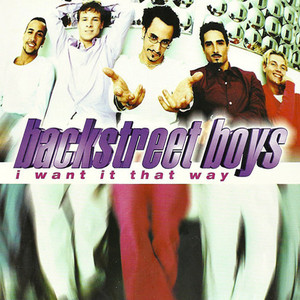Released: 4th May 1998
Writers: Søren Rasted / Claus Norreen
Peak position: #1
Chart run: 1-3-7-14-20-27-37-43-62-68
That Aqua would do a ballad was not in itself a shock. After all, having at least one on any bubblegum pop album is obligatory. But Turn Back Time is much more than a tick in the box; indeed, it deserves to be regarded as among their finest work and one of the best ballads of the ‘90s. No, really.
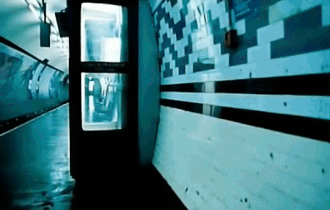
After topping the chart with Barbie Girl and Doctor Jones, there was no doubt that Aqua had proven their worth as purveyors of cartoon pop music. Several viable tracks on Aquarium could easily have consolidated their status (and yet, somehow, of the seven singles released from the album, none of them was Happy Boys & Girls). However, of all the surprises the group could’ve pulled at this point, Turn Back Time proved to be the biggest and most unexpected.

In theory, an Aqua ballad would draw obvious parallels from their uptempo songs, whose melodies were infectious and which hit on very overt nursery rhyme-esque hooks with grandiose production values. Having landed a spot on the soundtrack to Sliding Doors, that almost gave the song a licence to be ridiculously overblown and melodramatic. However, Turn Back Time is none of those things and takes a different approach to everything Aqua represented. Understated and nuanced were terms rarely associated with the group. It’s fair to say they were rarely ever used again. But that is how the song ends up sitting alongside Jamiroquai, Dido and Elton John on the Sliding Doors soundtrack without sounding remotely out of place.

The most immediately striking aspect of Turn Back Time is how cold it feels; from the simple piano melody emerges an electronic beat, which sustains that feeling of gloomy isolation. This is a song that keeps the listener at arm’s length for almost its entirety. It’s certainly something of a mood piece, with occasionally dark, brooding lyrics (“I seen it coming like a thief in the night, I seen it coming from the flash of your light”) and an inherently melancholic chorus: “If only I could turn back time, if only I had said what I still hide, if only I could turn back time, I would stay for the night”. A stirring piano melody that occasionally breaks through the atmosphere is never enough to thaw the track’s icy presence.
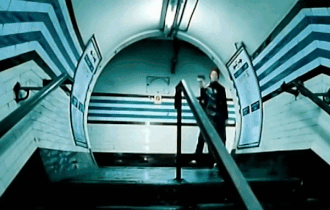
Turn Back Time delivers its most significant swerve shortly after the two-minute mark. As the second chorus ends, the song descends into a juddering, grinding breakdown. The electronic beat suddenly becomes more aggressive, chewing over Lene’s distorted vocals as she repeats: “The bolt reminds me I was there”. Then, just as it seems Turn Back Time is about to undergo a rather dramatic change of direction; everything stops. It’s as if the song resets itself, leaving just Lene singing the chorus whilst the gentle piano melody swells, and the production rebuilds itself to its pre-breakdown state. This might genuinely be one of the most beautiful moments in ‘90s pop music; it’s masterfully orchestrated and effortlessly carried out.
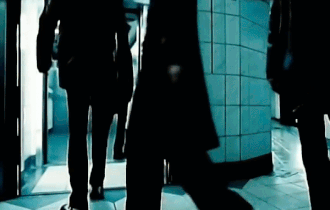
Vocally, Turn Back Time’s effectiveness largely depends on the expectation of how raw and authentic an Aqua song was ever likely to be. Lene could play a character when needed; after all, her turn in Barbie Girl was so good it earned the group a lawsuit from Mattel. But in this song, the only character she needs to play is herself; without a concept to guide the delivery, her performance ends up somewhat aloof, with any sincere vulnerability remaining just out of sight. Conversely, that air of functionality and disassociation perfectly matches the cool production. It leaves Turn Back Time as a moment for ponderance and reflection, without dragging the listener on a deeply personal journey.
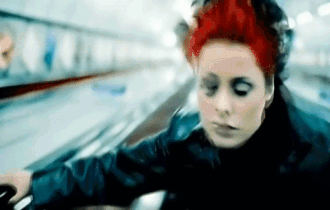
Regarding the vocals, Lene doesn’t quite get the whole song to herself; as the track draws to a close, she’s joined by the boys (well, Claus and Søren) for their: “If only I could, if only I could” backing vocals. It’s the only real indication of a climactic – and surprisingly moving – moment in Turn Back Time. Having undertaken the burden of the song alone, Lene being joined by her bandmates in its closing moments feels strikingly evocative.
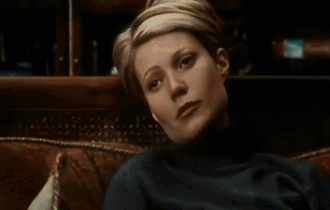
In contrast to the bold music videos of the previous singles, pitched as mini-movies, Turn Back Time gets a much more understated treatment. Between frequent clips from Sliding Doors, the concept mirrors the movie in that as Aqua pass through the ticket barriers onto the London Underground, Lene becomes ‘separated’ from herself and spends the rest of the video chasing the group around, trying to re-join herself. This is not how the plot of Sliding Doors worked. Still, with a much shorter running time of four minutes, it’s a reasonable representation of the core concept (of course, if Lene’s discombobulated self didn’t stop at the gate and sing a few lines of the first verse, she probably would have quickly caught up with herself and saved four minutes of bother).
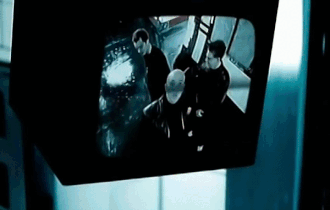
Towards the end of the video, Lene commits a cardinal sin on the London Underground – indeed, any public transport – and reaches the doors of the tube carriage just in time to wrench them open. Conveniently for Lene, only her bandmates are onboard, so she’s spared a sea of irate glares and re-joins herself for a comforting arm around the shoulder from Rene, which is his sole involvement in Turn Back Time. Even though the video has a very different aesthetic presentation from the earlier singles, there’s quite a lot of camera trickery involved allowing both Lene’s to be onscreen simultaneously, however briefly. And while the overall colour palette is far more muted than usual, it perfectly suits the song.

However good Turn Back Time is, there’s little doubt that its success was – in some part – propelled by the momentum from Aqua’s earlier singles rather than the quality of the song itself. It sold 75,000 copies to become the group’s third – and final – chart-topper in the UK, achieving a modest total of 241,000 copies (the 68th biggest seller of 1998). All the same, it’s hard to imagine any other point where Aqua would’ve been able to release a track like Turn Back Time and for it to reach #1. So, in many respects, this was a positive outcome, particularly since it also helped extend Aquarium’s run in the top 40, where it ultimately spent 44 consecutive weeks.
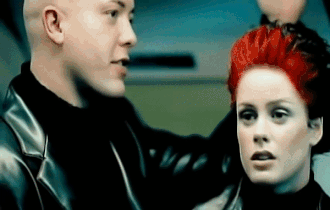
Though not such a dominating worldwide hit, Turn Back Time qualified Aqua as far more than a one-trick pony and put their talent as pop connoisseurs beyond any dispute whatsoever.


